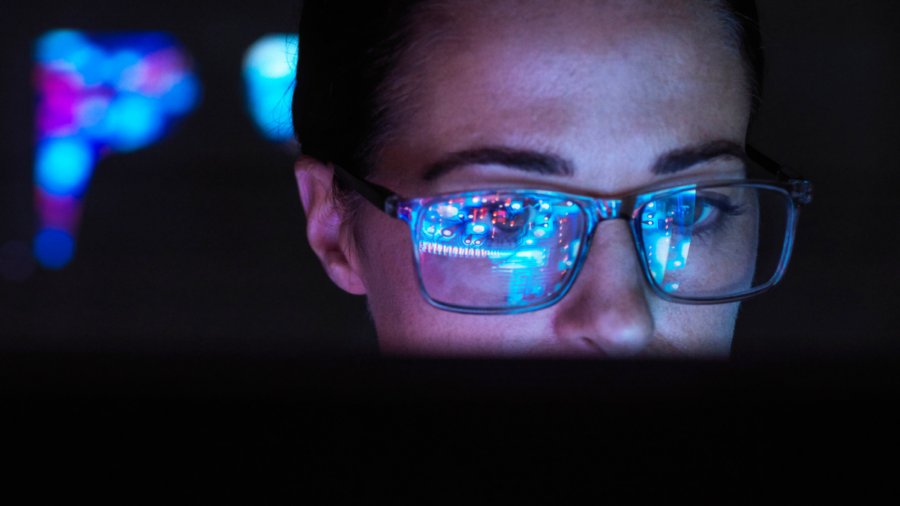
Will artificial intelligence put swathes of people out of work or spark a productivity boom that will change the world for the better? It’s a long-running debate with strong opinions on both sides.
The previous consensus appeared to be that AI would aid top performers the most by augmenting their skills. Meanwhile, lower-skilled or more junior workers would find themselves out of a job – a fear that’s spurred the Hollywood writers’ strikes.
But a string of recent studies analysing real-life data concerning AI’s effects on productivity and performance might prompt a rethink. One of these, published last week by the Boston Consulting Group, examined AI’s effect on 758 of its management consultants. Half were asked to complete a fictional consulting project with assistance from the latest model of text generator ChatGPT, while the other half performed the same task unaided.
AI worked like a leveller: lower performers had the biggest gains
Before this exercise, managers had assessed the consultants’ skills and performance, dividing the participants into “top half” and “bottom half”. While all the consultants using ChatGPT improved their performance while working on the project, those who had been placed in the bottom half improved their performance by an average of 43%. Their equivalents in the top half improved their performance by only 17%.
“AI worked like a leveller: lower performers had the biggest gains,” reported Professor Ethan Mollick, a co-author of the research paper.
A similar US study in May made even more startling findings. Researchers from Stanford University and the Massachusetts Institute of Technology (MIT) discovered that customer service agents at an unnamed large firm worked 14% faster on average while using an AI assistant. Yet the most skilled of these employees achieved no productivity gains at all.
The same effect has been replicated in studies covering industries ranging from law to journalism: instead of making the most talented people perform even better, AI may simply be letting less talented people compete with them.
AI could break traditional performance metrics
On the face of it, this sounds great for business leaders. Who wouldn’t want to boost their least skilled employees, perhaps even bringing them in line with their star performers? New recruits could also get to grips with their roles more quickly without having to undergo lengthy training programmes.
But the implications may be less favourable for top-performing employees. If the abilities that they may have worked long and hard to develop can be accessed by anyone at the tap of a button, these individuals are put at a disadvantage. While others have ‘levelled up’, their relative performance has decreased.
That will pose tricky questions for managers regarding the compensation, development and motivation of employees who have hitherto been considered star performers.
Should a star performer be paid more than someone who relies on AI, even if their output is identical?
Should an employee who has developed great expertise be paid more than someone who relies on AI, even if their output is identical? If not, how else can you incentivise them?
Does it even make sense to try to evaluate someone’s abilities independent of a tool that they use daily? What are the implications for recruiters when they know that a mediocre candidate could potentially do just as well as anyone else?
Making such questions even more pressing, many businesses are also investing in tech that can learn their own in-house expertise – for instance, Henry, the legal AI tool that firms such as PwC have adopted.
In these cases, top performers’ knowledge may have been used to teach the AI systems that other employees are now using.
“That top worker could change the whole organisation,” Professor Erik Brynjolfsson, one of the Stanford/MIT study’s co-authors, told Bloomberg. He added that firms would need to rethink how they compensate people whose skills can be “amplified and multiplied” throughout the business.
The technology and its uses are evolving quickly, of course. Predictions about AI made barely more than a year ago have already been proved wrong. But the new findings highlight the fact that the adoption of emerging technology often leads to unpredictable outcomes and new challenges. Responsible business leaders should start preparing to meet them.
Read next: Generative AI’s hidden costs – and how to minimise them

Will artificial intelligence put swathes of people out of work or spark a productivity boom that will change the world for the better? It’s a long-running debate with strong opinions on both sides.
The previous consensus appeared to be that AI would aid top performers the most by augmenting their skills. Meanwhile, lower-skilled or more junior workers would find themselves out of a job – a fear that’s spurred the Hollywood writers’ strikes.
But a string of recent studies analysing real-life data concerning AI’s effects on productivity and performance might prompt a rethink. One of these, published last week by the Boston Consulting Group, examined AI’s effect on 758 of its management consultants. Half were asked to complete a fictional consulting project with assistance from the latest model of text generator ChatGPT, while the other half performed the same task unaided.





